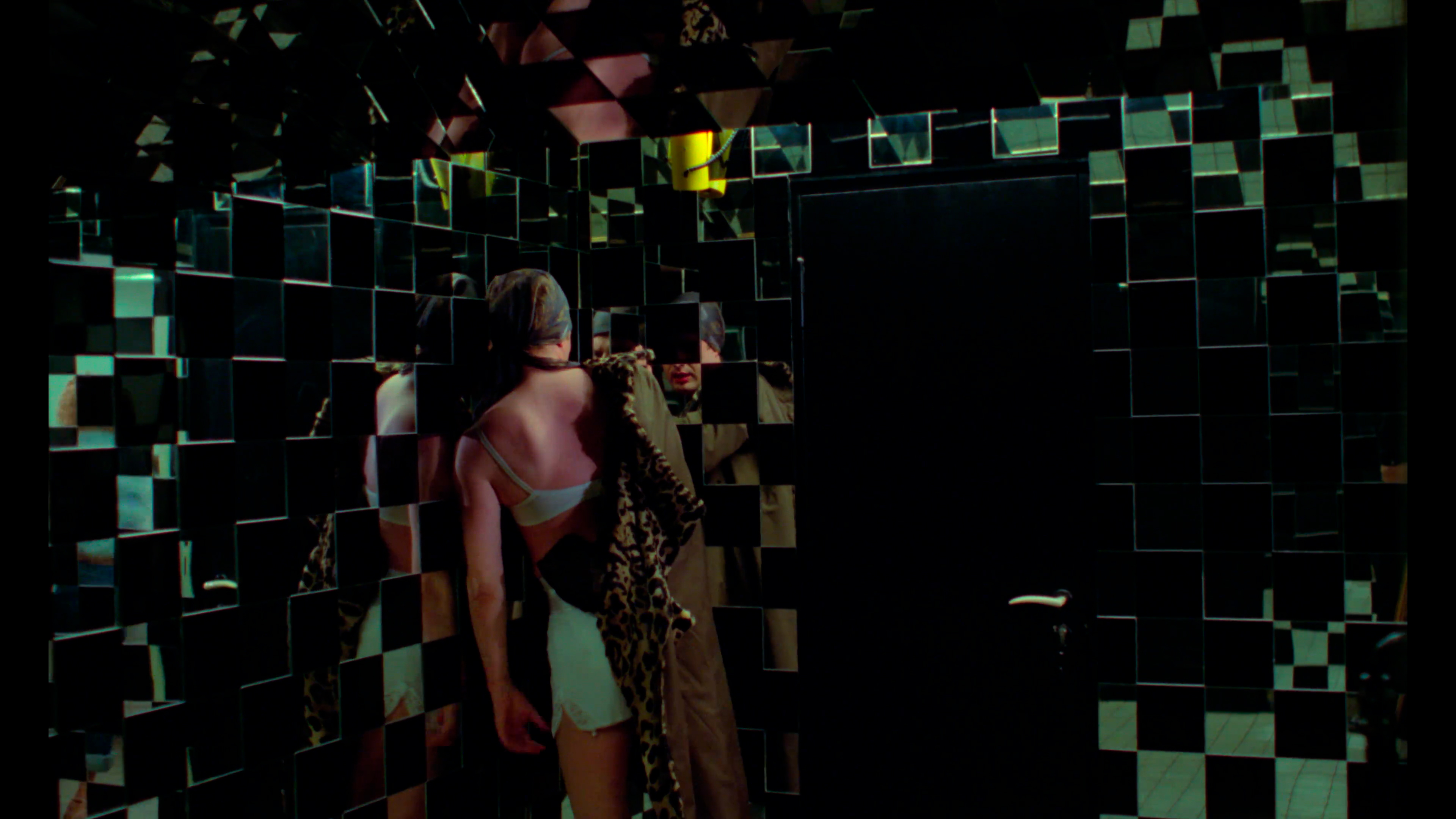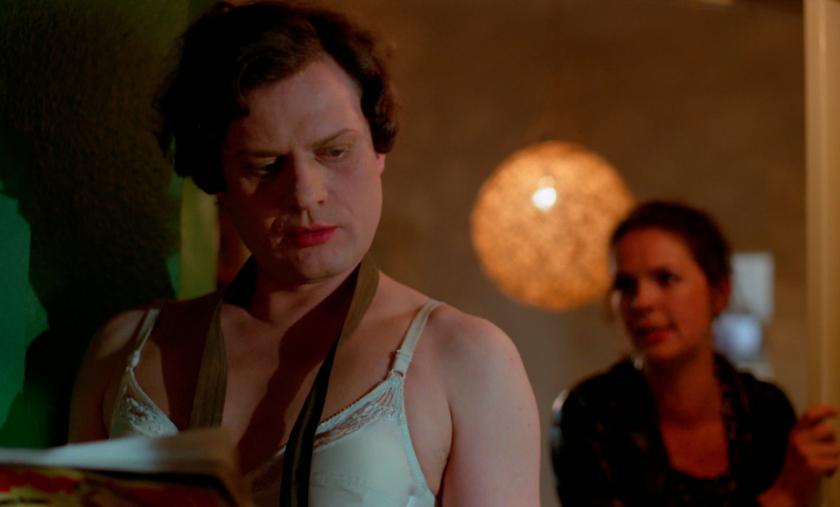A longshot of transgender Elvira (Volker Spengler) circled by gay men, assignation turning to assault as dawn mist rises from Frankfurt’s Main river, suggests Pasolini’s brutal 1975 assassination. Rainer Werner Fassbinder instead had in mind the suicide of his lover Armin Meier in May 1978.
“He was like a wounded animal recoiling in pain,” his editor and last partner Juliane Lorenz recalls, withdrawing for a month to a friend’s flat, and finally emerging with a treatment for In a Year of 13 Moons. The finished work is bracketed by its dates of filming, 24 July 1978-28 August 1978, like a feverishly scrawled novel. “If I hadn’t made this film, I would have had to kill myself too,” the director said.
 We are in the last week of Elvira’s life. Formerly Erwin, her dying fall, from reciting Goethe in a Hitlerian shriek as slaughterhouse cattle are beheaded and skinned in a shocking scene which is the definition of a naked lunch (Erwin, like Meier, had been a butcher) to softer despair makes her a challenging early trans heroine. “That can’t be the reason she’s unhappy,” Soul-Frieda (Walter Bockmayer) says of her change, as Elvira rests in the neon gay sanctuary he hosts above an arcade. “She must have been a woman deep down inside.” Instead, we learn of impulsive gender reassignment in Casablanca in the hope of pleasing a straight criminal partner she adored, Anton Saitz (Gottfried John).
We are in the last week of Elvira’s life. Formerly Erwin, her dying fall, from reciting Goethe in a Hitlerian shriek as slaughterhouse cattle are beheaded and skinned in a shocking scene which is the definition of a naked lunch (Erwin, like Meier, had been a butcher) to softer despair makes her a challenging early trans heroine. “That can’t be the reason she’s unhappy,” Soul-Frieda (Walter Bockmayer) says of her change, as Elvira rests in the neon gay sanctuary he hosts above an arcade. “She must have been a woman deep down inside.” Instead, we learn of impulsive gender reassignment in Casablanca in the hope of pleasing a straight criminal partner she adored, Anton Saitz (Gottfried John).
In a new extra, critic Juliet Jacques gives a thoughtful contemporary trans perspective on a film she found “terrifying” growing up, whose reputation has suffered from the later demand for “affirmative” queer films. She anyway no longer sees it as “primarily a trans film”, but Fassbinder’s improvised contemplation of love, barely cognisant of trans realities. Shifting mores can’t deny the great tenderness of Spengler’s performance, especially as Elvira tries to return to her old family life, torn between a world she is physically severed from and a new reality of abuse and rejection. Spengler’s introspective murmur and defiant mien embody Elvira’s dignity as she faces her fate. Fassbinder lights her like a Weimar film star, and though friends and family deny her at the last like Christ before his crucifixion, their love proves belatedly true. Meier’s death, shortly after being viciously berated by Fassbinder in Germany in Autumn, surely sparked this guilty, forlorn affection. As so often running on his nerves in a prolific, addiction-fuelled career which burned him up aged 37, Fassbinder conjures brilliant scenes and confessional monologues which occur in discrete adjacency, with spontaneous logic beyond more careful work. In a poetic 2004 interview included here, Fassbinder’s friend Werner Schroeter notes the “floating, wonderful structure” of a film made with “terrible lucidity” after Meier’s loss, “like a last moment in life, when everything is suddenly clear”.
As so often running on his nerves in a prolific, addiction-fuelled career which burned him up aged 37, Fassbinder conjures brilliant scenes and confessional monologues which occur in discrete adjacency, with spontaneous logic beyond more careful work. In a poetic 2004 interview included here, Fassbinder’s friend Werner Schroeter notes the “floating, wonderful structure” of a film made with “terrible lucidity” after Meier’s loss, “like a last moment in life, when everything is suddenly clear”.
As Elvira sleeps off her distress like a fairy tale princess under the white fur coat of her prostitute friend Zora (Fassbinder’s ex-wife Ingrid Caven), Fassbinder himself appears on TV in the darkened room. Taped that January, the director describes a “childhood that one can’t regard as a childhood in the normal sense”, much like Elvira’s. In a Year of 13 Moons “is without question about him…about the roots of his wounds…during the turning point of his personal life,” Lorenz believes. Neglected and even despised amidst a forbiddingly vast, fearsome filmography, this is emotionally bruised, important work.













Add comment